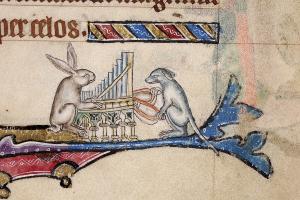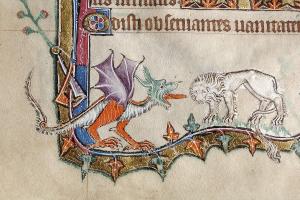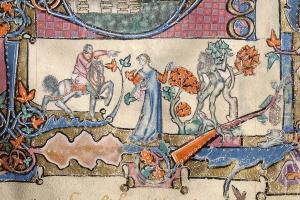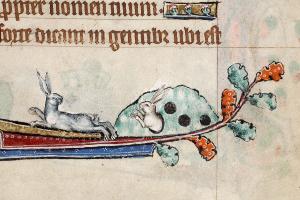A 14th century manuscript of considerable importance had been gathering dust for many hundreds of years at Shirburn Castle, seat of the Earl of Macclesfield. When the Earl died his library was dispersed at an auction in 2004. Among the bidders, and who subsequently was successful in obtaining the illuminated work was the J Paul Getty Foundation of California. There was an outcry about the book being lost to the nation and a public appeal resulted in its acquisition in 2005 by the FitzWilliam Museum in Scotland.
The illuminated book, a very small (170x108mm) work, consisting of 252 lavishly decorated pages was The Macclesfield Psalter. It was believed to emanate from East Anglia, author unknown. It included the Psalms of David and certain other texts, such as the important feasts in the liturgical year.
The importance of this little gem of a work is in its survival as the most remarkable English manuscript in living memory to be discovered. It is especially noted for its bold and gaudy images, many of a humorous nature - even bawdy in places.
All the folios of the Psalter follow the model of other Gothic works of the same kind. After displaying with extravagant illumination the 150 Psalms of David, there follow the litany of saints, prayers, the Office of the Dead and the Confessional Prayer. The pictures, including the initial letters of the verses, are superb in their ingenuity and execution. The whole is a manuscript of high art. It is as well that so much effort was taken to save it for the nation, and the beholder visiting it in the FitzWilliam Museum will be rewarded with awe and sheer delight.
Rod Dawson








